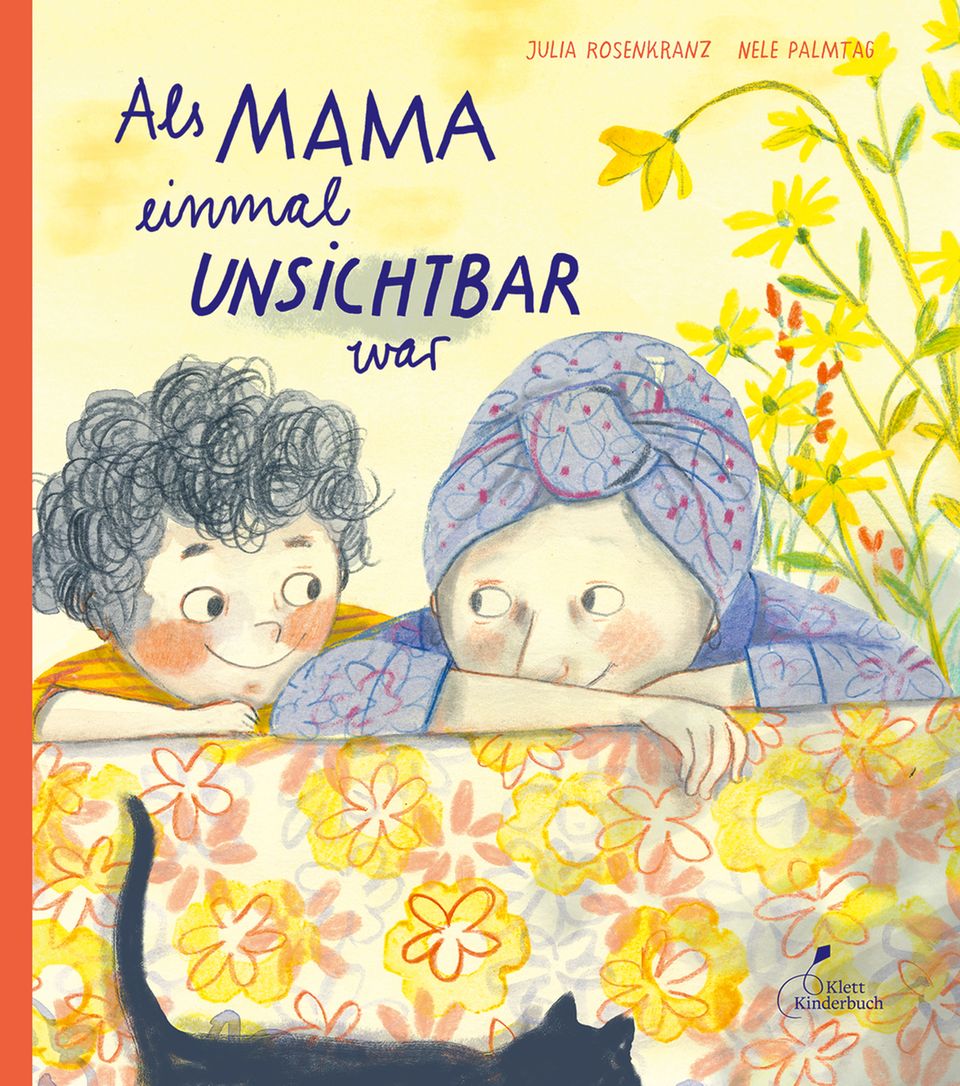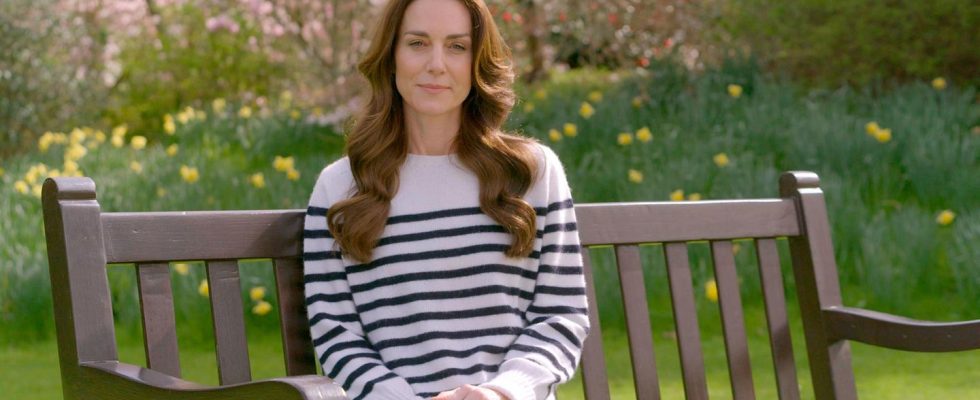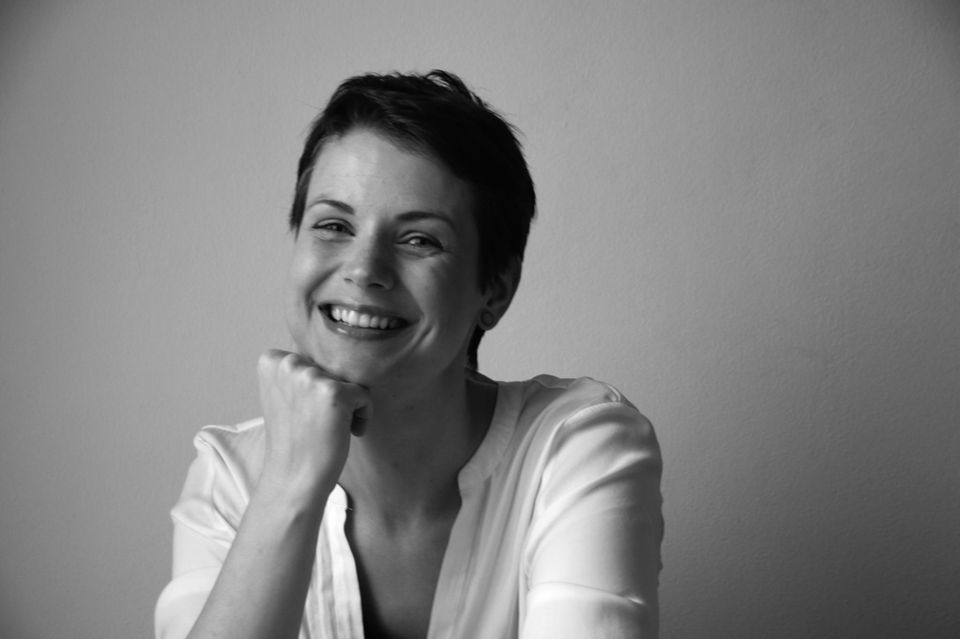Not only the diagnosis, but also Princess Kate’s touching Instagram video touches many people. The star spoke to a mother of three children who had a very similar fate – and who wrote a children’s book about it.
The question of how do you as a mother talk to your children about cancer has been affecting many people since Princess Kate’s Instagram video was published. Last year you wrote a children’s book on exactly this topic. How did you do this with your children?
After my diagnosis I received a whole stack of terrible brochures and books. We are a book family and even though they were so terrible, my kids clung to them. For them, this book route and seeing what I might look like was a gateway. They were still small at the time, two and four years old, so they didn’t talk about the fact that I might not get well again. That’s beyond the capabilities of that age.
Today things are actually different. My daughters are now nine, seven and almost two. I’ll just be honest and let’s say it like it is. What happens, what treatments are due and try to deal with it as best as we can.
Can you estimate how well your children are coping with it now, the second time around?
It doesn’t matter that it’s the second time, they were too small for that the first time. I wouldn’t say it doesn’t bother them, it’s just stressful. But I think they’re handling it quite well. But that is also because we involved our entire environment right from the start. We told the school, the kindergarten and friends. Not because I wanted to share this with everyone. But I think it’s very important for the children that they have the opportunity to talk about everything wherever they feel welcomed and comfortable. And so the other person also has the chance to adjust to it and think about their answers. This doesn’t just happen at home, quite the opposite.
This is based on the old thesis: It takes a whole village, right?
But at least!
The strain on the body and mind during chemotherapy is immense. How do you still manage to gain enough distance so that you can still talk about it and your role as a mother and in the case of Princess Kateto perform in office?
I haven’t seen the video, but I’ve read various articles about it.

“When Mom was once invisible” by Julia Rosenkranz (author) and Nele Palmtag (illustrator), Klett children’s book, 32 pages, 16 euros.
© Klett children’s book / manufacturer
How do you cope when there is so much speculation about you?
The good thing about not being Princess Kate is that when in doubt I can give up all roles. I learned this in the first therapy: This is not a decision, it happens all by itself. Especially when it happens to you for the first time. Suddenly you can’t even begin to fulfill a single role: neither mother, wife, colleague, nor anything. You are so reduced to the last remnant that is still there that you have to deal with it first.
I didn’t have to keep going when I got sick again, because I already knew that. I was more stable in some respects because I knew: I had to try to maintain that. But the role of mother is actually not the first one. Not at all.
But rather self-preservation?
Yes, exactly. The more strength I put into it and the better I succeed at it, the better I can be a mother or fill other roles.
What does your husband have to take care of or this whole “village” that they have dedicated? They can’t replace a mother, can they?
No, to be honest, my husband has to take on more than a person alone can handle. This is actually not possible. But the fact is that… partner has to completely replace a second person. These are “little things” like shopping, driving children to hobby activities, cleaning and, and, and. Of course that adds up and he also works full time. Of course, the financial level is also part of it; he can’t say, “Then I’ll leave it alone and take care of the family.” This goes beyond the limits of a single person, it can only be done for a while. Accordingly, a lot of friends, relatives and neighbors have to help out. This all works pretty well, but that doesn’t change the fact that the partner is completely overstressed.
The interesting thing about the role of mother, which you give up a little bit, is that the children have to carry more weight than many other children. But: They also carry you along if you let them. You can really comfort me. At first you think it sounds so negative when you can no longer fulfill your role as a mother, but I think it fills up from the other side too. You can say, “Oh, but they’re children!”, but it creates something new that’s really good, even for the children. At least it feels good for us as a family! Even though they are still children, they can bring a lot to the table.
How does this show up?
On really bad days, whether physical, mental or emotional, they can support me, comfort me or help me. Of course that’s not always the case, they have to be children again, but that helps us all a lot.
Children then often learn very quickly to be more independent. Is that the case in your family?
Definitely. You also depend on it. But that’s not necessarily negative. The space that you may have previously protected, even though it may no longer be necessary, then allows you to grow in a positive way.
You have three daughters, so there’s probably a lot of hair to braid, right?
Absolutely! And having lots of discussions about the need to dress!
Do your children like your book?
Yes! But that doesn’t mean they’re easy to watch.
Has it already been translated, could it be sent to the palace?
No, but that’s a good idea! Pass this on!
What other question should I have asked you?
What is perhaps good for understanding the book is that I experienced this myself as a child because my dad also had cancer. I actually know this from both sides, not just from this mom-adult perspective. It’s important to me, especially from a child’s perspective, that you can find a space for all the unpleasant feelings. I think it’s great if the book is unpleasant, which is exactly what it’s supposed to be. When you look at a book like this together, you can experience sadness together or be unable to continue reading together. That’s what it’s there for.
How was it for you as a child?
We haven’t talked about it as openly as we both do. This left a lot unsaid. I didn’t have much space to deal with it, but I didn’t want to open it because I felt it was overwhelming my parents. In the past, such big emotional chunks simply weren’t brought to the table, so rarely did anyone say that they felt bad. But maybe it would have been good, I wish!


